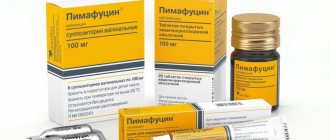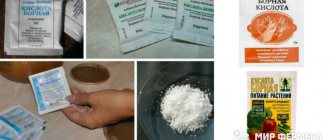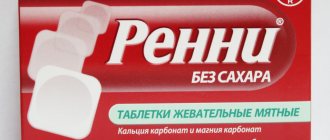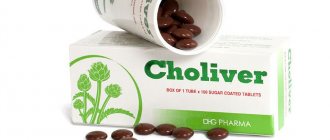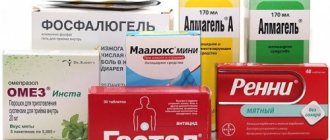Trialgin is a drug that belongs to the group of analgesics-antipyretics of combined action. The main active ingredients of the drug are:
- caffeine;
- phenobarbital;
- Metamizole sodium.
Potato starch and magnesium stearate are used as excipients.
Trialgin is available in the form of tablets of 10 or 20 pieces per pack and in bottles for the preparation of an injection solution.
Dosage regimen and features of administration
The dose is selected by the doctor individually, based on the general condition of the patient and concomitant acute and chronic diseases.
The standard dosage is 1 tablet 3-4 times a day for adults over 12 years of age.
The tablet should be taken with plenty of liquid (at least 200 ml) without chewing. The maximum duration of treatment is 5 days.
Elderly and senile people need to reduce the dosage by half. The use of the drug during pregnancy and lactation is prohibited.
Trialgin powder for the preparation of solution for oral administration 325mg/32mg/2mg in a 5g package No. 5
Name
Trialgin por.d/prig.d-ra d/in. approx.325mg/32mg/2mg in pack.5g in pack No.5
Description
Powder from almost white to light orange color with a specific odor. When the contents of the package are dissolved in 100 ml of hot water, a slightly cloudy orange solution with a specific odor is obtained.
Main active ingredient
A remedy for eliminating the symptoms of acute respiratory infections and colds (analgesic non-narcotic drug + h1-histamine receptor antagonist + psychostimulant drug)
Release form
powder for solution for oral administration
Dosage
5 g
Indications for use
Trialgin contains three active ingredients. Paracetamol relieves pain and reduces elevated body temperature. Chlorpheniramine maleate is an antihistamine. It helps relieve coughs, sneezing and runny nose. Caffeine acts as a mild stimulant. This product does not contain components that relieve nasal congestion. Trialgin is intended for short-term use to relieve symptoms of influenza and influenza-like conditions, colds and chills. These symptoms include headache, chills, muscle pain, nasal congestion and sinus pain, clear nasal discharge, watery eyes and sore throat.
Directions for use and doses
The drug is intended for adults and children aged 12 years and older. Inside, at one time, dissolve the contents of one packet in hot water and drink after cooling it to a temperature of 21-24°C. The interval between doses is from 4 to 6 hours as needed.
- Do not take more often than every 4 hours.
- Do not take more than 8 packets in 24 hours.
- Do not take more than the recommended dose.
- Do not take for more than 5 days in a row without consulting a doctor.
- Do not give to children under 12 years of age.
- Avoid drinking caffeinated drinks such as coffee and tea. High caffeine consumption can cause sleep disturbances, jitters and chest discomfort.
- During the treatment period, you should not drink alcohol-containing drinks, as combined use with paracetamol can have a severe damaging effect on the liver.
If you have taken a large number of packets, talk to your doctor if you have any concerns, even if you feel well. This is because an overdose of paracetamol can cause delayed but serious liver damage. If your symptoms persist, consult your doctor.
Use during pregnancy and lactation
Due to the caffeine content, this product should not be used if you are pregnant or breastfeeding.
Interaction with other drugs
Talk to your doctor or pharmacist before taking Trialgin if you are taking other medicines. You should especially draw the doctor's attention to the combination with the following medications: metoclopramide or domperidone (to treat nausea or vomiting), ergotamine or methylsergide (to treat migraines), cholestyramine (to lower blood cholesterol), drugs to lower blood pressure; to suppress or stimulate appetite; medicines to treat depression, such as tricyclic antidepressants (eg, amitriptyline), or to treat heart disease (eg, digoxin), or if you are taking blood thinners (anticoagulants, such as warfarin).
Contraindications
You should not take Trialgin in the following cases:
- if you have previously had an allergic reaction to any of the components of Trialgin (paracetamol, caffeine, chlorpheniramine maleate);
- with insufficient kidney or liver function, with increased thyroid function, diabetes mellitus, high blood pressure, decompensated heart failure;
- if you have pheochromocytoma or glaucoma;
- if you are taking tricyclic antidepressants (eg imipramine or amitriptyline) or if you are taking or have taken in the last two weeks a monoamine oxidase (MAO) inhibitor (eg moclobemide) prescribed for depression;
- if you are taking beta blockers (eg atenolol);
- Combining Trialgin with alcohol is dangerous.
Do not take any other medicines containing paracetamol while taking Trialgin. Do not use with other cold remedies. Use special caution when taking Trialgin in the following situations:
- this medicine may cause dizziness. During the appointment, you must refrain from driving a car or operating machinery.
Check with your doctor before taking in the following situations:
- if your doctor knows that you have an intolerance to certain sugars;
- if you have a blood vessel disease such as Raynaud's phenomenon;
- if you have an enlarged prostate;
- if you have heart or vascular disease.
Compound
Each package of Trialgin contains: Active ingredients; Paracetamol 325 mg, Chlorpheniramine maleate 2 mg, Caffeine 32 mg. Other ingredients: Anhydrous citric acid (E 330) Sodium saccharin (E 954) Sodium citrate (E 331) Orange flavor Sunset yellow supra dye (E 110) Colloidal silicon dioxide anhydrous Glucose These substances may cause allergic reactions.
Side effect
Some people may experience side effects when they take this medicine. If you have any unwanted side effects, you should talk to your doctor, pharmacist or other healthcare provider. Stop taking this drug and tell your doctor immediately if you experience the following:
- Allergic reactions that can be very serious, such as skin rash and itching, sometimes with swelling of the mouth, face, or difficulty breathing.
- Skin rash or mouth ulcers.
- Breathing problems. This is more likely if you have experienced them before while using other painkillers such as ibuprofen or aspirin.
- Unexplained bruising or bleeding.
- Return of fever or infection.
- Nausea, sudden weight loss, loss of appetite, and yellowing of the skin and eyes.
- Visual impairment. This is rare, but most likely to occur in patients with glaucoma.
- An unusually fast pulse or a feeling of an unusually fast or irregular heartbeat.
- Difficulty urinating. This is more common in men with an enlarged prostate gland.
Rare adverse reactions (it is possible to continue taking the drug, but consult a doctor). If the following and any other side effects occur while taking Trialgin, please notify your doctor.
- High blood pressure,
- dizziness,
- difficulty sleeping,
- nervousness,
- anxiety,
- diarrhea.
Storage conditions
Keep Trialgin out of the reach of children. Store Trialgin at a temperature not exceeding 25°C in its original packaging to protect it from moisture.
Side effect
The occurrence of complications and side effects is extremely rare. They can occur as a result of a severe overdose or in case of individual intolerance to the drug. An allergic reaction to the components of the drug is expressed by urticaria and Quincke's edema.
Insomnia, feelings of anxiety, psychomotor agitation, tremors of the limbs, and epileptic seizures may occur if they have appeared previously. Decreased ability to work, attentiveness, and concentration.
An increase in heart rate and a slight rise in blood pressure, and an increase in the frequency of respiratory movements are possible. If one or more symptoms occur, you should stop taking the drug and consult your doctor.
Trialgin, tablets
International nonproprietary name of the main active ingredients: Paracetamol, Caffeine, Chlorphenamine. This combination allows Trialgin to be effective in the treatment of diseases accompanied by fever or pain.
Why is Trialgin effective for colds accompanied by chills, fever, runny nose and cough? Colds manifest themselves in the form of general weakness, increased body temperature, headache, runny nose, cough, difficulty breathing, due to blockage of the nasal passages, trachea and bronchi by products of the inflammatory reaction. These symptoms are successfully relieved by Trialgin at the very beginning of colds. The mechanism of action of the main active ingredient of the drug paracetamol is determined by inhibition of the synthesis of prostaglandins and other mediators of pain, thermoregulation and inflammation mainly in the central nervous system. Caffeine has a moderate psychostimulant effect and temporarily reduces symptoms of fatigue and drowsiness. Due to a combination of central and peripheral effects on the heart and blood vessels, the cardiovascular system has an ambiguous effect: coronary vessels, as a rule, dilate, and brain vessels are toned, blood pressure increases slightly (more often with initial hypotension). Caffeine increases basal metabolism, has a moderate myopropic antispasmodic effect (dilates the bronchi, bile ducts), stimulates the secretion of gastric glands, and slightly increases diuresis. The pharmacological properties of caffeine are due to its competitive antagonism with adenosine at the level of A1 adenosine receptors and inhibition of PDE activity. . Chlorphenamine, by blocking histamine H1 receptors, has a desensitizing effect, reduces the vascular-tissue permeability of the mucous membrane of the upper respiratory tract, and thereby prevents runny nose and cough.
It should be noted that Trialgin is especially effective at the very beginning of the development of colds of various etiologies , thereby relieving the first symptoms of the disease and alleviating the patient’s condition. In this case, the patient has the opportunity to immediately contact the pharmacy to purchase and use Trialgin, which allows him to quickly and promptly begin treatment, since Trialgin does not require a doctor’s prescription and can be freely purchased at the pharmacy .
Trialgin is also for other diseases:
— febrile syndrome in infectious diseases;
- pain syndrome (mild and moderate severity): arthralgia, myalgia, neuralgia, migraine,
- toothache and headache, algodismenorrhea; pain from injuries, burns.
- sinusitis, rhinorrhea (acute rhinitis, allergic rhinitis).
Contraindications for use
It is strictly prohibited to take pills for:
- high sensitivity to metamizole sodium;
- intolerance to analgesics;
- analgesic bronchial asthma;
- diseases of the hematopoietic organs;
- acute hepatic porphyria;
- acute kidney diseases;
- acute liver diseases;
- myasthenia gravis;
- severe shortness of breath or upper airway obstruction;
- pregnancy and lactation.
The use of the drug under the influence of alcohol or drugs and by persons under the age of 18 is strictly prohibited.
Tablets are prescribed and taken with caution under the supervision of a doctor in the following cases:
- in case of impaired liver function;
- in case of impaired renal function;
- with a history of gastric and duodenal ulcers, regardless of the date of the last exacerbation;
- for glaucoma;
- for psychoneurological disorders;
- in old and senile age;
- persons suffering from epileptic seizures.
Trialgin® (Trialgin)
Metamizole sodium
Enhances the effects of ethanol.
It is not recommended to use radiocontrast drugs, colloidal blood substitutes and penicillin simultaneously.
With simultaneous use of cyclosporine, the concentration of the latter in the blood decreases, therefore, when using them simultaneously, the concentration of cyclosporine should be monitored.
Metamizole sodium increases the activity of oral hypoglycemic drugs, indirect anticoagulants, glucocorticosteroids and indomethacin.
Phenylbutazone, barbiturates and other inducers of microsomal liver enzymes, when used simultaneously, reduce the effectiveness of metamizole sodium.
Concomitant use with other non-narcotic analgesics, tricyclic antidepressants, contraceptive hormonal drugs and allonurinol may increase their toxicity.
Meditative and anxiolytic drugs (tranquilizers) enhance the analgesic effect of metamizole sodium.
Thiamazole and cytostatics increase the risk of developing leukopenia.
The effect is enhanced by codeine, H2-histamine receptor blockers and propranolol (slows down inactivation).
Myelotoxic drugs enhance the hematotoxicity of the drug. The simultaneous use of metamizole sodium and methotrexate may increase the hematotoxicity of the latter, especially in elderly patients.
With the simultaneous use of metamizole sodium and chlorpromazine, severe hypothermia may develop.
Phenobarbital
Interaction with other drugs is mainly due to the ability of phenobarbital to induce cytochrome P450 (mainly the CYP3A4 isoenzyme).
Reduces the antibacterial activity of antibiotics and sulfonamides, the antifungal activity of griseofulvin (reduces absorption).
Reduces the effectiveness of indirect anticoagulants, glucocorticosteroids, doxycycline, estrogens and other drugs metabolized by microsomal liver enzymes.
The hypnotic effect is reduced by simultaneous intake of atropine, belladonna extract, dextrose, thiamine, nicotinic acid, analeptics and psychostimulants.
When combined with reserpine, the anticonvulsant effect decreases; under the influence of amitriptyline, nialamide, diazepam, chlordiazepoxide, it increases.
Acetazolamide, by alkalinizing the urine, reduces the reabsorption of phenobarbital in the kidneys and weakens its effect.
Strengthens the effect of alcohol, neuroleptics, narcotic analgesics, muscle relaxants, sedatives and hypnotics.
Caffeine
Caffeine is an adenoside antagonist (larger doses of adenosine may be required).
With the combined use of caffeine and barbiturates, primidone, anticonvulsants (hydantoin derivatives, especially phenytoin), it is possible to increase metabolism and increase the clearance of caffeine; cimetidine, oral contraceptives, disulfiram, ciprofloxacin, norfloxacin - decreased metabolism of caffeine in the liver (slower its elimination and increased concentration in the blood).
Caffeinated beverages and other central nervous system stimulant medications—possible overstimulation of the central nervous system.
Mexiletine - reduces caffeine excretion by 50%; nicotine - increases the rate of caffeine elimination.
Monoamine oxidase inhibitors, furazolidone, procarbazine and selegiline - large doses of caffeine (more than 300 mg/day) can cause the development of life-threatening cardiac arrhythmias or a marked increase in blood pressure.
Caffeine reduces the absorption of calcium preparations in the gastrointestinal tract.
Reduces the effectiveness of narcotic and sleeping pills.
Increases the excretion of lithium drugs in urine.
Accelerates absorption and enhances the effect of cardiac glycosides, increasing their toxicity.
Concomitant use with beta-blockers may lead to mutual suppression of therapeutic effects; with β-adrenergic agonists - to additional stimulation of the central nervous system and other additive toxic effects.
Caffeine may decrease the clearance of theophylline and possibly other xanthines, increasing the potential for additive pharmacodynamic and toxic effects.
special instructions
The maximum duration of taking the drug is 5 days.
Since the tablets contain caffeine, patients with gout, arrhythmia and hyperthyroidism should take them with caution under the supervision of a specialist.
At the time of treatment, it is necessary to significantly reduce or completely eliminate caffeine-containing products from the diet.
If two days after starting to take the drug, symptoms of fever and intoxication do not go away, muscle pain and aches persist, you should consult a doctor. If, for forced reasons, the course of treatment exceeded 5 days, you should take a blood test and do an ultrasound examination of the liver to determine its functional state.
If the temperature rises again after it drops, the first symptoms of vaginitis appear in women, or a sore throat, you must immediately stop taking the drug.
If bruises, pallor of the skin, general weakness, increased fatigue, or fainting appear on the skin, you should immediately seek medical help.
Instructions for use TRIALGIN tablets
If fever continues during use of the drug for more than 3 days and pain persists for more than 5 days, you should consult a doctor.
You should consult your doctor if your symptoms:
- do not improve within 5 days;
- accompanied by fever that lasts more than 3 days;
- include a sore throat that lasts more than 3 days, accompanied by fever, headache, rash, nausea or vomiting.
The simultaneous use of other medicinal products containing paracetamol should be avoided.
When using the drug, it is not recommended to drink alcoholic beverages, since ethyl alcohol while taking paracetamol can cause liver dysfunction.
It is imperative to consult a doctor before using Trialgin in patients with the following conditions:
- arterial hypertension;
- cardiovascular diseases;
- diabetes;
- hyperthyroidism;
- increased intraocular pressure (i.e. glaucoma);
- pheochromocytoma;
- prostate enlargement;
- obliterating vascular endarteritis (for example, Raynaud's phenomenon);
- epilepsy;
- bronchitis;
- bronchiectasis;
- bronchial asthma;
- liver and kidney diseases.
Caution should be exercised in patients with renal impairment and in patients with liver failure, as this product contains paracetamol and chlorpheniramine, which increase the risk of paracetamol-related liver damage. Patients who have been diagnosed with liver or kidney failure should consult a doctor before taking the drug.
Chlorpheniramine may enhance the effects of alcohol, so concomitant use should be avoided.
Concomitant use with drugs that cause sedation, such as tranquilizers and sleeping pills, may lead to increased sedation, so consult a doctor before taking chlorpheniramine at the same time as these drugs.
The drug should not be used simultaneously with other antihistamines.
Elderly patients are more likely to experience neurological anticholinergic effects and paradoxical arousal (eg, increased energy, restlessness, nervousness).
When taking chlorpheniramine late in the evening, symptoms of gastroesophageal reflux may increase.
When chlorpheniramine is used in combination with ototoxic agents, symptoms of ototoxicity may be masked.
If symptoms persist, you should consult a doctor.
Special Cautions
The use of alcoholic beverages or sedatives (especially barbiturates) increases the sedative effect of chlorpheniramine; therefore, taking such drugs should be avoided while using Trialgin.
The risk of drowsiness increases with the use of alcoholic beverages, medications containing alcohol, or sedatives.
The risk of predominantly psychological dependence appears only with doses exceeding the recommended ones and with long-term treatment.
To avoid the risk of overdose, make sure that other medications the patient is taking do not contain paracetamol.
For adults weighing more than 50 kg, the total dose of paracetamol should not exceed 4 g per day.
The recommended dose of the drug contains approximately the same amount of caffeine as is found in one cup of coffee.
While taking the drug, you should limit the use of drugs, drinks and foods containing caffeine, since excessive caffeine consumption causes nervousness, irritability, insomnia and sometimes tachycardia.
Use in pediatrics
The drug is contraindicated in children under 15 years of age.
Children are more likely to experience neurological anticholinergic effects and paradoxical arousal (eg, increased activity, restlessness, nervousness).
Impact on the ability to drive vehicles and machinery
During treatment, it is not recommended to drive vehicles or work with complex mechanisms that require increased concentration and high speed of psychomotor reactions. Due to its anticholinergic properties, chlorpheniramine may cause drowsiness, dizziness, blurred vision, and psychomotor impairment in some patients, which may seriously affect the ability to drive and use machinery. With the simultaneous use of sedatives, tranquilizers or alcohol, increased drowsiness may occur.
